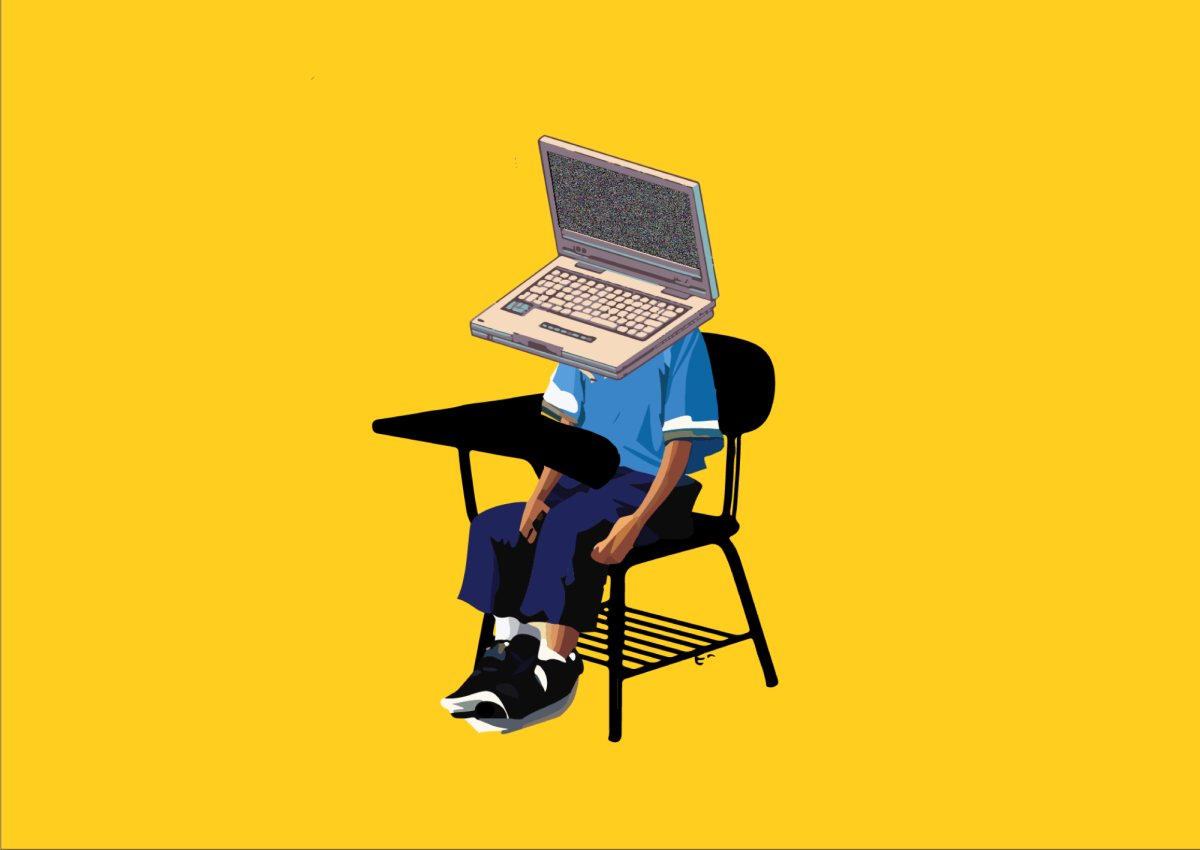The concept and creation of AI and ChatGPT are groundbreaking, but they may be used the wrong way in classrooms. Offering more precise answers than Google, its ease of use allows an incentive for students to rely on AI as a crutch for homework, essays, and more.
The more this continues, though, the less students learn. The world needs professionals like doctors and lawyers with the ability to rely on their intelligence. Students can’t advance in future professions with reliance on AI dimming their knowledge.
University of Utah students must stop using generative AI as a primary source for schoolwork. It restricts learning and sets students up for failure.
The Statistics
Nearly one-third of college students used ChatGPT for schoolwork this past academic year, and its usage is only going up. It can generate just about anything, including full essays and completed math problems.
Generative AI draws indiscriminately from internet resources and frequently gives false information. In a 2023 study from Purdue University, the chatbot produced incorrect answers more than half of the time, with a concerningly low 52% accuracy rate. Not only are students who rely on ChatGPT not learning but they’re being fed incorrect information.
A second-year undergraduate student who wished to remain anonymous said he used ChatGPT for math problems. When asked if his questions were answered correctly, he said, “No, it’s wrong about 80% of the time.”
While ChatGPT can speed up an assignment, it hinders learning, growth and development while producing a subpar product.
A Learning Dilemma
Deadlines and poor time management are detrimental to students’ mental health. This prompts them to want to find an easy way out.
There are multiple ways to combat this feeling of hopelessness. The U’s writing center looks over a wide range of papers and essays. There is also a learning center and a specific math tutoring center, which together have support for anything you can think of.
The resources are out there, but it’s up to students to use them and plan accordingly. Professors can often tell when students use generative AI, whether it’s the quality of information or work.
Essays written by AI “lack whatever qualities animate human writing, whether you call it voice, depth, style or critical capacity,” said Maximilian Werner, a professor of writing and rhetoric at the U.
Jennifer Andrus, a professor in the U writing department acknowledged deadlines and other pressures can lead students to look for quick solutions.
“If I notice something that seems disfluent in a student’s writing, I talk to the student instead of accusing them about something,” Andrus said. “In those conversations, we come to a conclusion about revision goals, expectations and strategies together.”
It all comes down to realizing help is attainable.
The Flip Side
Despite all this, ChatGPT can be a great tool.
“It is certainly useful as a tool, say, for pre-writing activities,” Werner said. Generative AI can provide a great jumping off point for your research and writing, where you find the facts yourself.
It’s hard to tell the impact of AI on classrooms since it’s so new. ChatGPT appears helpful for surface-level questions, outlines and starting assignments. But when it comes to longer essays and reports, students can’t count on quality answers. For now, teachers can generally identify the use of AI — but in the coming months, that might not stand true.
It’s important to understand AI is still evolving. As it continues to improve, it might become more helpful in educational institutions. But it could become more harmful, as students could more easily get away with submitting work they didn’t do. Staying aware of these advancements creates a balanced approach for professors using AI to complement class content.
Use Your Resources
The world is advancing every day. Things like AI aren’t going away — it’s up to you to make the decision and turn in your work. Students must own their feelings of stress and accept all the resources the U has to offer. AI is not the answer when you are overwhelmed.
As students increasingly rely on generative AI, the difference between learning and cheating becomes more and more blurred.
Knowing what AI can do in the classroom proves it’s too spotty to trust. U students shouldn’t use AI as a crutch. It compromises our future careers. Our future selves will thank us for not using AI.


















